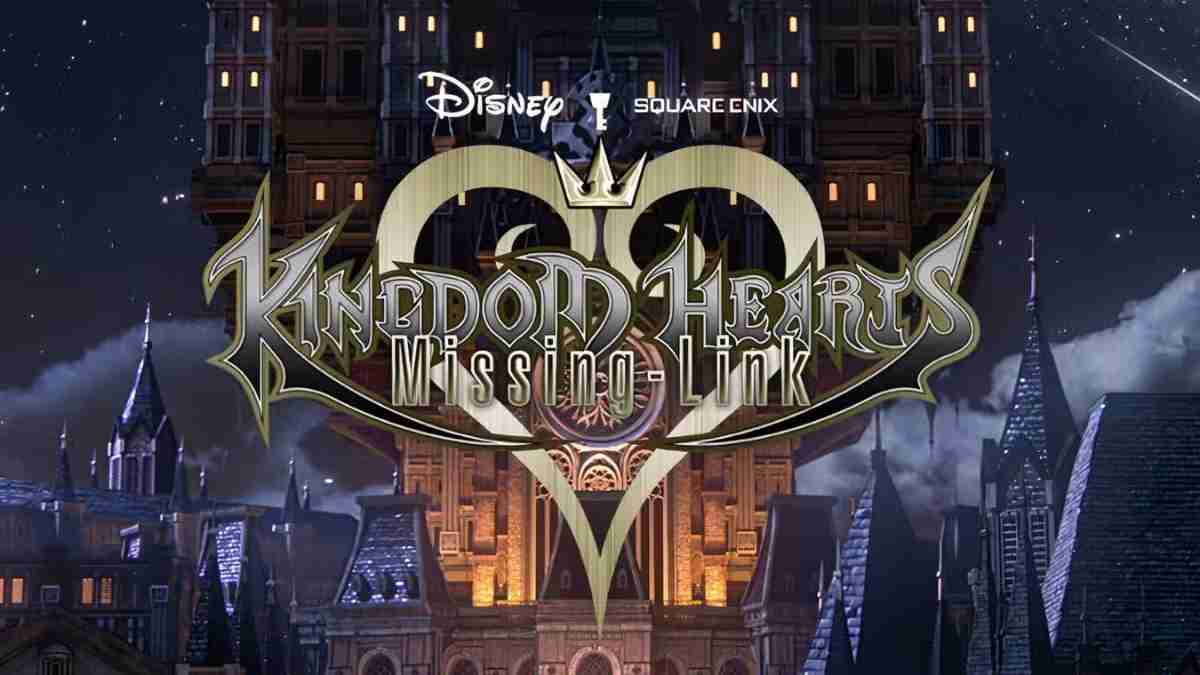For a game that was supposed to bridge story gaps and bring Kingdom Hearts into the world of mobile AR, Missing-Link won’t be getting that chance. Square Enix has shut the project down, marking a quiet end to a title that never got past its regional testing phase.
Announced in 2022, Kingdom Hearts Missing-Link was pitched as a Pokémon GO-style game wrapped in the Kingdom Hearts universe. With closed betas and tech tests in select countries, it was clearly being shaped for a niche audience. But after internal reevaluation, Square Enix decided to cancel it entirely.
What the Game Was Supposed to Be
Missing-Link blended action-RPG combat with location-based mechanics, using GPS movement and map-based gameplay similar to Niantic’s mobile titles. Players could move through a virtual version of the real world, summon classic Kingdom Hearts characters, and fight in real-time battles that leaned on mobile-friendly controls.
The game was set between Union Cross and the mainline Kingdom Hearts series, part of the ongoing effort to flesh out the franchise’s increasingly dense lore. It also looked to gamify physical movement by offering in-game rewards tied to real-world exploration, with optional mechanics for those who preferred stationary play.
Where It Fit in the Kingdom Hearts Timeline
Square Enix often uses spin-offs to build out narrative backstory, and Missing-Link was designed to be one more piece of that puzzle. Storywise, it was intended to explore the early days of Scala ad Caelum and the mysterious Society of the Heirs. But like Union Cross before it, this entry leaned heavily on deep lore rather than driving the main plot forward. For longtime fans, it might have been another breadcrumb.
For new or lapsed players, it was yet another side path in an already fragmented series. Square Enix says the decision came after reviewing how development was progressing post-beta. They cited difficulties balancing the location-based concept with user expectations and engagement.
It’s not the first time the company has cut a live-service or mobile project after testing. Babylon’s Fall and other short-lived titles suggest a pattern of greenlighting experimental ideas that struggle to find a sustainable audience. In Missing-Link’s case, it may have come down to whether the niche it aimed for was worth the continued investment.
A Sign of Bigger Shifts at Square Enix
The cancellation came alongside news that Square Enix is rethinking how it approaches game development overall. Recent statements from leadership point to a focus on fewer, more polished games with clearer market appeal.
That could mean fewer mobile experiments and more emphasis on core franchises. For Kingdom Hearts, it might also suggest a tighter focus on Kingdom Hearts 4 and other major releases. The series is known for branching off into mobile side stories, but those detours might be less common going forward.
What It Means for Mobile AR and Franchise Spin-Offs
Mobile AR games that rely on real-world movement are still chasing the early success of Pokémon GO, but very few have managed to hold player interest long-term. Missing-Link was one of many attempts to apply that formula to a different IP, and like most of them, it didn’t quite land. The combination of lore-heavy storytelling, physical activity, and mobile combat is a tough sell.
Without a strong hook or a massive brand push, these kinds of games tend to fade quickly. Kingdom Hearts brings brand recognition, but not necessarily the kind that guarantees mobile success—especially when the gameplay format strays far from what fans expect. Kingdom Hearts Missing-Link may not have been a major release, but its quiet cancellation says a lot about where Square Enix is heading. And it leaves another fragment in a series already full of half-told stories.
Mobile Game Addict & Casual Gaming Critic
She’s played more mobile games than most people have downloaded. TAPTAPTAP is fast, fierce, and funny — reviewing the latest hypercasual hits, idle clickers, and gacha grinds with real talk and zero fluff.




